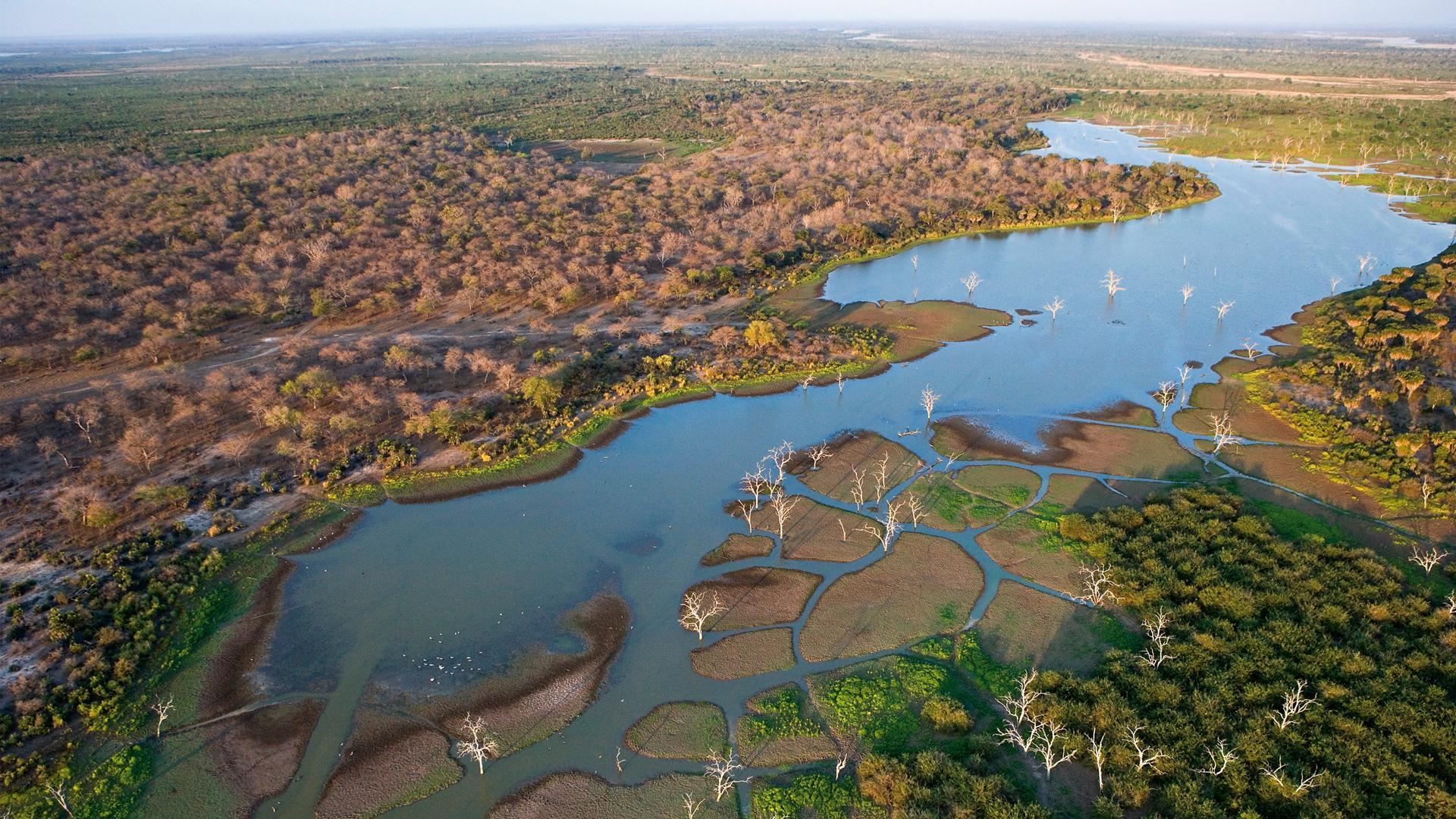Africa-Press – Botswana. Safeguarding the extraordinary Okavango Basin for future generations requires deep collaboration with communities, non-governmental organisations and government working together at every level.
The chief science and innovation officer from National Geographic Society, Mr Ian Miller made the remarks recently during the launch of Nkashi Knowledge Centre at Beetsha village.
He noted that their mission was to illuminate and protect the wonders of the world and cited Okavango Basin as one of the few magnificent wonders.
He said the society was an important partner to advance the lasting impact.
Mr Miller noted their commitment to investing in and supporting the National Geographic Okavango Wilderness project, which began a decade ago under the leadership of National Geographic explorer, Mr Steve Boyes.
He said Mr Boyes had dedicated his life to conserving Africa’s wilderness areas and the species that they depended upon through innovative and integrative methods.
Mr Miller said in 2015, Mr Boyes launched the Okavango Wilderness project, a multi-year effort aimed at exploring and protecting the little known wilderness of the Angolan highlands.
This is the one, he said, that provided 95 percent of the water that sustained the delta and the biodiversity of the greater Kavango-Zambezi Transfrontier Area and the project had now become the National Geographic Okavango Wilderness project.
“Today Mr Boyes works alongside eight explorers from the region. Collectively, they are combining science with traditional knowledge, exploration, education and powerful storytelling to help ensure the future of the Okavango,” he added.
Mr Miller appreciated that a partner, De Beers Group emerged four years ago to supercharge their efforts through partnership with Okavango Eternal and they had already seen tremendous progress.
He said they had made significant advance in science research, citing a job well done by the Okavango Wilderness Project team, which had mapped more than 1.25 million hectares of critical Angolan habitat, prioritising the area for conservation.
“Just as important, we have worked closely with the communities to ensure they are leading the way in conservation. Together with De Beers and other stakeholders, we have helped create more than 1500 opportunities from bee-keeping to regenerate agriculture, basket weaving and entrepreneurial skill building,” he said.
Mr Miller said another meaningful outcome of their partnership saw the word ‘Nkashi’ evolve, citing that what began with the Nkashi Classic and the National Geographic Film about the mokoro race had become a movement.
Many, he said, had shared how ‘Nkashi’ now stands for forward momentum, resilience and a hopeful future for the Okavango.
He added that the movement came to life with the flagship Nkashi Knowledge Centre in Maun, a thriving hub that had already welcomed more than 3000 students, scientists and community members for trainings, events and learning opportunities.
He said through the centre, they had engaged hundreds of youth in Science, Technology, Engineering and Mathematics (STEM) as well as conservation initiatives through a new laboratory and also helped them and young professionals refine how they tell their stories through storytelling clubs.
“With the launching of Beetsha Centre, we are accelerating these efforts again in the heart of the delta and it is our hope that this space opens doors in ways that continue to elevate this community to build upon skills and reinvest them here to become the next conservation leaders, educators, storytellers and mentors,” he added.
For More News And Analysis About Botswana Follow Africa-Press






